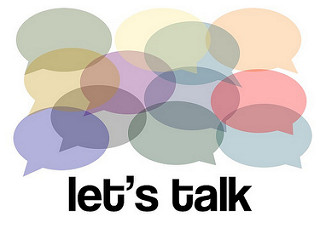I found out about International Mother Language Day around the time that I was chided by a stranger via email for my use of the word 'program' not 'programme' in one of our email marketing campaigns.
Weight loss programme surely. Assuming you are an English company?
It was simply an oversight because I sometimes forget that, although Australians and Britons speak the same language, we often speak very differently.
Australians tend to blend British and American English. Some of us give such a vigorous "eff" when pronouncing 'lieutenant' and denounce 'different than' as treachery, while taking on American spellings when it suits us.
What's a little undergarment humour between friends?
Although it's rarely met with the joviality that I'm aiming for, I joke as much as I can about the fact that my fiancé intends to don "just a vest and pants" for our upcoming summer nuptials.
To a Brit, this distressingly suggests that I'm the kind of girl who would marry the kind of guy who can't get enough of showing his undies in public. The necessary 'English-to-English' translation indicates that he intends to wear a waistcoat and trousers. Quite normal, really.
Given I work as a writer in England, I try to keep on top of these differences to avoid such embarrassing, potentially client-losing faux pas as to spell programme incorrectly.
How I am changing from Australian to British English
- I don't say "I'll put the jug on" anymore; I say I'll "put the kettle on."
- After a few hefty outcries in my first summer, I switched from "bringing my thongs" to "bringing my flip flops" on beach sojourns.
- I acknowledge I'm losing what feels like a one-woman crusade to implement the serial comma, that bastion of all sense and sensibility in sentence lists.
There are, of course, those unstoppable blustering blunders when someone politely (while stifling laughter) tells me that Keighley, a north west Yorkshire town, is pronounced Keithley, or that it might be for the best if I said "monj too" instead of "mainj toot" for what I would just call snow peas. Ah, the vegetables:
- you say courgette, I say zucchini
- you say peppers, I say capsicum
- you say aubergine, I say eggplant.
Sigh. Will the confusing Australia-to-British English differences ever end?
Share your English versus English
What joy has the cultural divide brought to you when speaking the same language with foreigners? Tell us in the comments.
Celebrating cultural diversity and solidarity through language
In all seriousness, though, International Mother Language Day is not about the battle of the English-speaking wits. Wikipedia's article highlights that the day has been observed for more than a decade to "promote awareness of linguistic and cultural diversity and multilingualism".
Languages are the most powerful instruments of preserving and developing our tangible and intangible heritage. All moves to promote the dissemination of mother tongues will serve not only to encourage linguistic diversity and multilingual education but also to develop fuller awareness of linguistic and cultural traditions throughout the world and to inspire solidarity based on understanding, tolerance and dialogue. -- United Nations
The UNESCO interactive atlas of endangered languages is populated with 2471 submissions of languages deemed to be:
- vulnerable
- definitely endangered
- severely endangered
- critically endangered
- extinct
Of those 2471 languages, 108 of them come from my 'English-speaking' motherland, Australia, submitted by Dr Michael Walsh, senior lecturer at the University of Sydney.
Talking language and culture on Google+
On 20 February 2014, we held a public Rocksalt Google+ hangout inviting people to join us to talk about their thoughts on language and culture, and IMLD.
See all of the videos as we publish them by subscribing to our YouTube channel.
On this annual celebration of mother language, I will both laugh at the irony of the intercontinental nuances of my first language, and acknowledge with respect the diminishing Australian native languages and the associated loss. I will ask friends about their native language to learn more about their culture.
I've already learned that the first language of certain regions of the Philippines is Tagalog, but that children are taught English from an early age. Roadworks signs such as 'stop', 'go', and 'men at work' are written in English because the Tagalog equivalent is too long. On International Mother Language Day, I will celebrate my friends' mother language, too.
Banner image (cropped): Children Reading Pratham Books and Akshara by Pratham Books is licenced under CC BY 2.0






